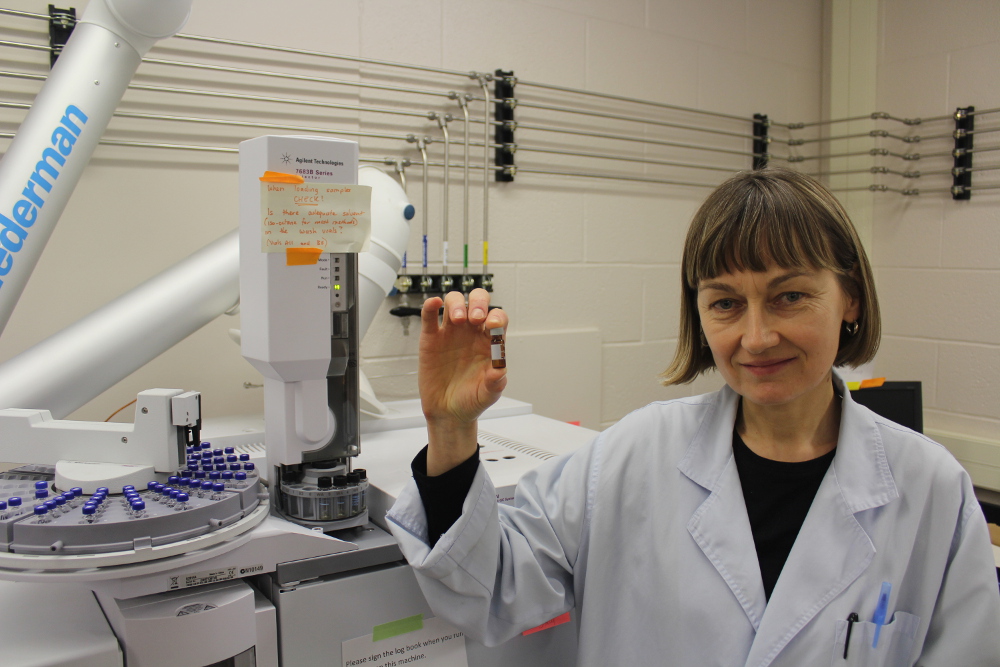
In addition to the nutritional value they already contain, common Canadian crops like canola and flax may soon have cancer fighting benefits too.
Elzbieta Mietkiewska, a Research Associate with Phytola, isolated three genes from pomegranates and incorporated them into high-value oilseed crops adding punicic acid to its list of nutritional benefits. Punicic acid is a polyunsaturated fatty acid only found, until now, in the pomegranate and Chinese cucumber seed oil and that has been found to help slow the growth of skin, prostate and breast cancer cells.
However, finding seeds to extract punicic acid from doesn’t come easily or cheaply.
“Because the fruits [that contain punicic acid] can only grow in hot climates and the seeds are very small, things like skin care products containing punicic acid are expensive,” explains Mietkiewska.
Punicic acid also assists with weight loss, has anti-inflammatory characteristics, and can even act as a chemical agent that can help paints dry quicker. Mietkiewska points out that incorporating punicic acid into high-value, Canadian oilseed crops will benefit both the farmers growing the crops and the consumers looking for products containing this polyunsaturated fatty acid.
Pomegranate seed oil contains up to 70 per cent of punicic acid. Mietkiewska’s experimental plants accumulate up to 25 per cent punicic acid in the oilseeds that initially contained no punicic acid at all. Because of punicic acid’s unique benefits and the progress made so far in Canadian oilseed crops, interest in Mietkiewska’s research is quickly growing.
Phytola and TEC Edmonton have applied for a patent on the research to begin the commercializing process. Mietkiewska is confident that in the coming years, the oilseed crops that Phytola is developing, in partnership with Alberta Innovates Technology Futures will make products containing punicic acid easier to access and help more people capitalize on their benefits.
Phytola is a research organization funded by Alberta Innovates Bio Solutions and based at the University of Alberta’s Department of Agricultural, Food and Nutritional Sciences in the Faculty of Agricultural, Life, and Environmental Sciences. Phytola’s research looks into Canadian oilseed crops to develop new technologies and enhance the oilseed industry.
